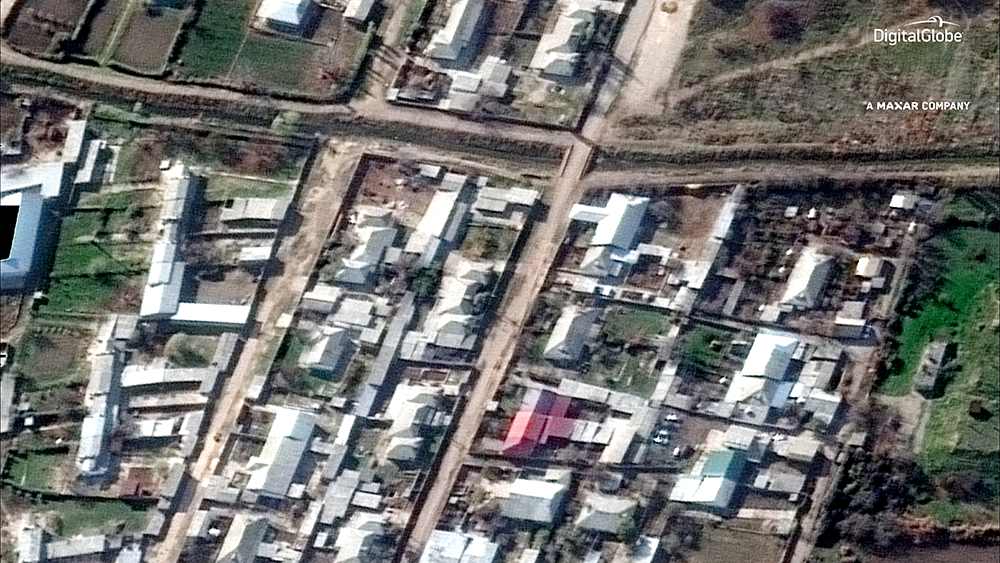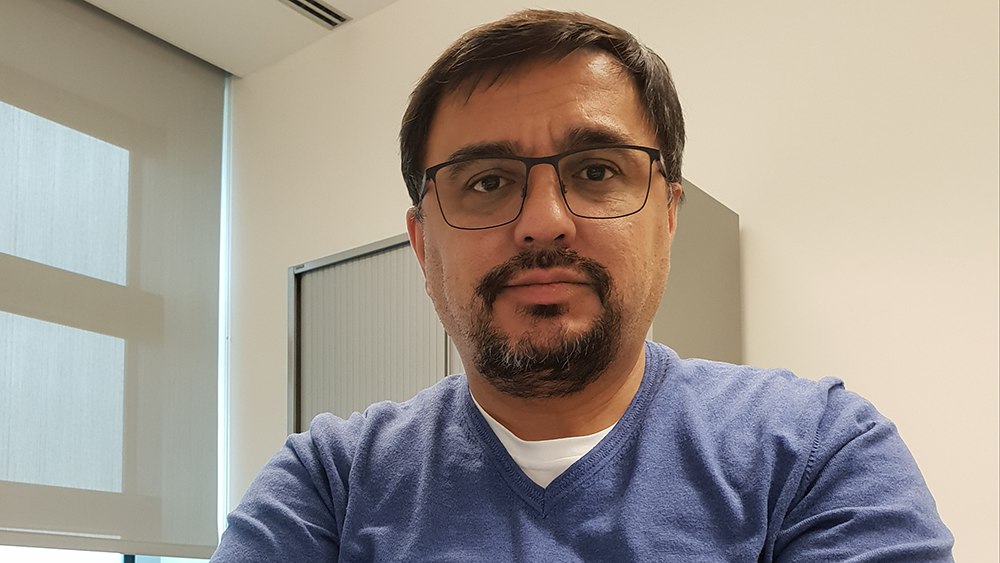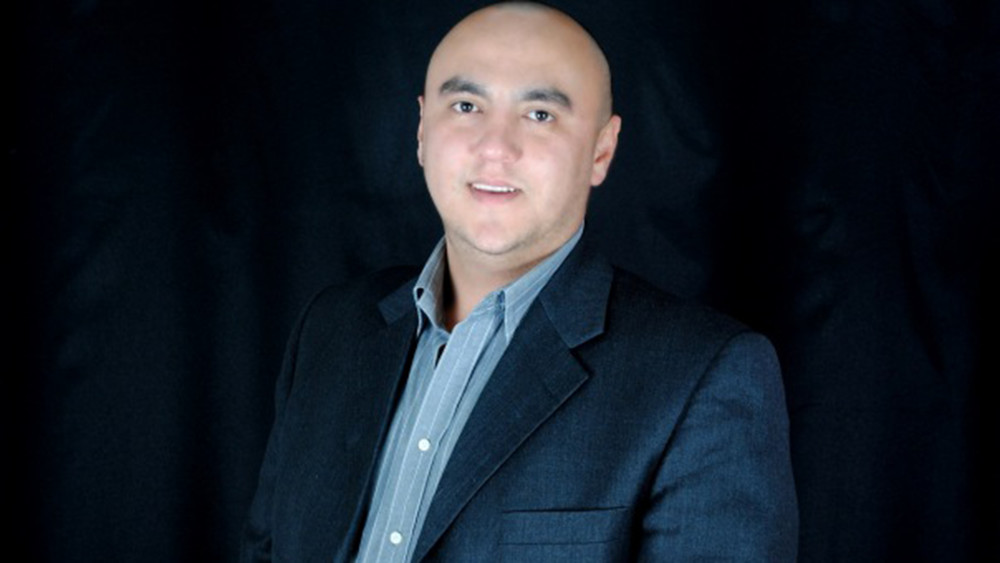COLLEGE PARK, Maryland – Uzbekistan’s new government has released hundreds of political prisoners in last two years, but still has more behind bars than all other former Soviet states combined.
Until early February, Aziz Yusupov was one of them. He was imprisoned for three years as the government’s way to force his older brother to stop reporting about corruption in the country from abroad. It didn’t work.
His brother, Farruh Yusupov, works at Radio Free Europe/Radio Liberty’s headquarters in Prague. In 2012, he and a colleague published a series of stories detailing the financial corruption of the president’s daughter, Galnara Karimov. Shortly afterward, Aziz’s problems began.
Aziz Yusupov’s identification and computer were confiscated by Uzbek police, making it impossible for him to travel outside his hometown, Ferghana. He was under constant surveillance.
“At times he would be openly followed by security officers,” Farruh told Capital News Service. He was taken for questioning several times, once at 3 a.m.
“The officer who interrogated him demanded that he stop talking with me, and they played a recording of one of our conversations over the phone,” said Farruh.
After years of harassment, in 2016 Aziz Yusupov was arrested on what RFE/RL officials said were trumped up drug possession charges and signed a confession that his brother said was made only after authorities threatened to rape Aziz’s mother and daughter.
Aziz “was framed clearly, we all understand that,” said RFE/RL correspondent Bruce Pannier.
Working for a U.S.-funded and created news outlet, known throughout Central Asia, provided no protection for either brother.
RFE/RL was created during the Cold War to counter Soviet propaganda. After the Soviet Union’s collapse, it became one of the most important sources of independent reporting in the 23 countries that it reports on in Europe, Central Asia and the Middle East. It is still funded by U.S. government but is protected by law from U.S. government interference.
Aziz Yusupov’s fate is a familiar story to journalists trying to work under authoritarian rule and facing threats to their families. He urged his brother not to give in to pressure and to continue his reporting.
Farruh, guilt-ridden about his brother’s imprisonment, said Aziz told him one day: “My body is in jail, but my spirit is free.”
“He is my hero.” Farruh said somberly.

Aziz was released from prison in early February. He was not available for comment.
“I am of course very much relieved that he is a free man now,” said Farruh. “It was Aziz who suffered the most. But for three years I, too, had been bearing the burden in my chest.”
But his release is conditional, he said. He must find job and then give up 15 percent of his salary to the state. He is currently trying to repair his health and spending time with his daughter, who was born about two months after his arrest.
Uzbekistan declared independence from the collapsing Soviet Union in late 1991 and Communist Party leader Islam Karimov became the country’s first president. Karimov ushered in an oppressive, authoritarian regime that faced little opposition.
“These were folks that were brought up in a Communist system, which was harshly authoritarian if not totalitarian,” said former U.S. Ambassador to Uzbekistan John Herbst, “and they weren’t used to having or understanding how a loyal political opposition truly worked. So, it was beyond their understanding I would say.”
During Karimov’s rule, thousands of political prisoners were jailed, tortured and killed, including journalists. Independent news outlets were prohibited. Citizens were forced into slavery each fall to harvest cotton, an Uzbekistan top export behind gold and petroleum.
Human rights organizations routinely condemned Karimov’s regime, citing slavery, unwarranted arrests, sham trials, lengthy imprisonments and torture behind bars.
After Karimov’s death in 2016, long standing Prime Minister Shavkat Mirziyoyev assumed the presidency and promised reform. Some critics believe his changes are merely cosmetic.
“Local journalists are taking on a more dynamic role,” said Steve Swerdlow, Central Asian researcher at Human Rights Watch. “But there is a clear reluctance on the part of the authorities to let journalists really set up shop in the country. There’s a fear of chaos from the authorities if they let the floodgates of free speech open.”
But on the foreign policy side, Mirziyoyev “has done some very good things, easing tensions with the neighbors,” said Herbst. “The changes that he’s promising domestically are coming much more slowly.” Allowing domestic media to report freely is one of them; so is allowing foreign media to broadcast into the country.
“When I ask the authorities, they deny they are blocking anyone. But we know they are,” Voice of America’s Uzbek journalist, Navbahor Imamova, told Capital News Service. Neither RFE/RL, BBC nor Voice of America’s Uzbek service are accessible. “We check every day and sometimes there is sporadic access.”
Amir Sultanov, the human rights officer at the Uzbek embassy in Washington, told Capital News Service in an interview that he doubted outside publications were blocked. Uzbekistan “would tolerate any journalist free of censorship.” He said he was unable to comment on Aziz Yusupov’s case because he was unfamiliar with it.
Sultanov said content deemed to be promoting extremism can be blocked, but only after the author is notified and given a chance to either amend or retract the information. If the author refuses or is unresponsive, then the Uzbek government will block the content, he said.

Farruh and Aziz Yusupov’s story begins not in Uzbekistan, but in Tajikistan where they were born.
Farruh Yusupov remembered a good life in Tajikistan, going to university and living a comfortable middle-class existence. But in May of 1992, Tajikistan fell into a brutal civil war. Yusupov’s family was one of the first to leave.
They had bought train tickets, but the station was so packed that his family’s reserved four-person train booth was packed with nine people, Yusupov said.
He stayed behind to finish his year at the university hoping to resume his studies in Uzbekistan the following year. However, civil war escalated.
Yusupov can still remember selling the charred remains of his family’s home just for the money to get his grandfather and him out of Tajikistan the next year. With that money they walked nine kilometers to a train station where they bribed the staff to get on the train and reunite with their family in Uzbekistan.
“There were times for weeks we didn’t have any money, no jobs, I was a student. We didn’t know what would happen,” he said.
Yusupov got a job as a teacher for $10 a month, and eventually was hired by U.S.A.I.D. to help produce public health soap operas. While his pay was good, Yusupov said he could not ignore the plight of the Uzbek people. Inspired by his journalist father, who had reported for the People’s Tribune in Soviet-controlled Tajikistan, Yusupov accepted a position at RFE/RL and moved his family to Prague.
The government retaliated against him with a 2013 documentary on a state-owned local TV channel that attempted “to shame me and my family,” he said. In April 2017, another one appeared branding him a traitor.
Between these two broadcasts, in 2016, Aziz Yusupov was arrested on drug charges. The local police investigation was taken over by the former KGB, secret police.
“When they take any case, regardless of guilt level, they will be convicted,” Farruh Yusopov said. “They are just a punishment machine.”
Aziz Yusupov was sentenced to eight years in prison. No evidence was presented against him at trial, only his signed confession, according to RFE/RL reporting at the time. His sentence was commuted to five years and seven months after Karimov died.
Since 2001, American relations with Uzbekistan have focused on trade and defense. After the Sept. 11, 2001, terrorist attacks, Karimov agreed to allow the U.S. military to use the Karshi-Khanabad Air Base as a logistics hub for the U.S. invasion and occupation of Afghanistan.
But chronic human rights violations eventually caused rifts with the United States. In 2005, Uzbek police opened fire on a large crowd of protestors, killing hundreds. In response, then-Secretary of State Condoleezza Rice urged “the Karimov government to make reforms, to make the system more open, to make it possible for people to have a political life.” Karimov responded by ordering the U.S. military to vacate the air base.
In May 2018, Karimov’s successor, Mirziyoyev, made his first visit to the White House to sign a massive new trade agreement. The White House called it, “ushering in a new era of strategic partnership between the United States and Uzbekistan.”
President Donald Trump praised Mirziyoyev for his human rights reforms, citing prisoner releases and the end of forced labor. During his visit, Mirziyoyev signed nearly two dozen deals with major U.S. businesses that, if fulfilled, will amount to more than $4.8 billion.


You must be logged in to post a comment.